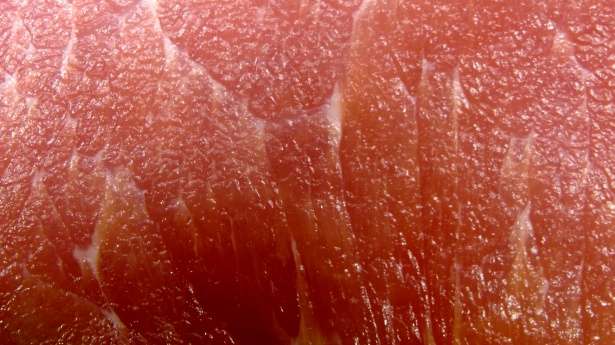Meat consumption contributing to global obesity

Should we be warning consumers about over-consumption of meat as well as sugar?
That's the question being raised by a team of researchers from the University of Adelaide, who say meat in the modern diet offers surplus energy, and is contributing to the prevalence of global obesity.
Comparative anatomy and human evolution experts from the University's School of Medicine have been studying the correlation between meat consumption and obesity rates in 170 countries.
"Our findings are likely to be controversial because they suggest that meat contributes to obesity prevalence worldwide at the same extent as sugar," says Professor Maciej Henneberg, head of the Biological Anthropology and Comparative Anatomy Research Unit.
"In the analysis of obesity prevalence across 170 countries, we have found that sugar availability in a nation explains 50% of obesity variation while meat availability another 50%. After correcting for differences in nations' wealth (Gross Domestic Product), calorie consumption, levels of urbanisation and of physical inactivity, which are all major contributors to obesity, sugar availability remained an important factor, contributing independently 13%, while meat contributed another 13% to obesity.
"While we believe it's important that the public should be alert to the over-consumption of sugar and some fats in their diets, based on our findings we believe meat protein in the human diet is also making a significant contribution to obesity," Professor Henneberg says.
The research has been conducted by PhD student Wenpeng You, who recently presented the findings of his work at the 18th International Conference on Nutrition and Food Sciences in Zurich, Switzerland. This research has also formed the basis of two papers on the issue, published in BMC Nutrition and the Journal of Nutrition & Food Sciences.
"There is a dogma that fats and carbohydrates, especially fats, are the major factors contributing to obesity," Mr You says.
"Whether we like it or not, fats and carbohydrates in modern diets are supplying enough energy to meet our daily needs. Because meat protein is digested later than fats and carbohydrates, this makes the energy we receive from protein a surplus, which is then converted and stored as fat in the human body."
Mr You says there have been several other academic papers showing that meat consumption is related to obesity, but the authors have often argued that it's the fat content in meat that contributes to the problem. "On the contrary, we believe the protein in meat is directly contributing to obesity," Mr You says.
Professor Henneberg says: "It would be irresponsible to interpret these findings as meaning that it's okay to keep eating a diet high in fats and carbohydrates. Clearly, that is not okay, and this is a serious issue for our modern diet and human health.
"Nevertheless, it is important that we show the contribution meat protein is making to obesity so that we can better understand what is happening. In the modern world in which we live, in order to curb obesity it may make sense for dietary guidelines to advise eating less meat, as well as eating less sugar," he says.
More information: Wenpeng You et al. Meat consumption providing a surplus energy in modern diet contributes to obesity prevalence: an ecological analysis, BMC Nutrition (2016). DOI: 10.1186/s40795-016-0063-9
Meat in Modern Diet, Just as Bad as Sugar, Correlates with Worldwide Obesity: An Ecological Analysis. www.omicsonline.org/nutrition- … hp?abstract_id=74168















